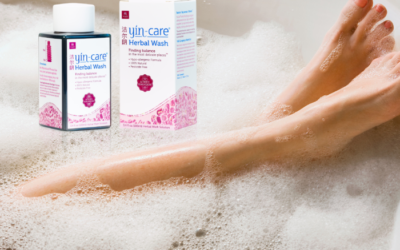The Best Supplements for Kids
It is recommended that children over the age of two years old include the following in a healthy diet for proper growth and development:
- Fruits and vegetables
- Whole grains
- Fat-free and low-fat dairy products
- Protein food
- Oils
- Limit sodium and sugars
- Adequate hydration – preferably with water.

Multivitamin for toddlers, kids, and teens
Depending on your child’s age and/or weight they may require a different kind of multivitamin. Often it may not be necessary for your child to take a multivitamin if they eat healthily and are growing properly. However, some kids are picky or need extra daily nutrition.
Multivitamins can be recommended if your child is:
- Experiencing a physical or developmental growth delay aka failure to thrive
- Has food allergies or intolerances
- Has a chronic disease
- Is on a restrictive diet
- Iron deficiency for teen girls starting their period.
Dietary Supplements and Autism
Many kids with or without autism tend to be picky eaters that may not eat a balanced diet and supplements can be a great way to ensure they are getting the nutrients they need each day.
Studies show that children with autism spectrum disorder do not consume enough of:
- Vitamin A
- Vitamin B12
- Vitamin C
- Vitamin D
- Iron
- Zinc
- Calcium
- Folate
- Magnesium
- Omega-3s.
Because so many children with autism suffer from gastrointestinal issues caused by the gut microbiome many pediatricians recommend taking probiotics. Scientists have found that they ease gastrointestinal symptoms as well as autism-like behaviors in mice with the probiotic strain Lactobacillus reuteri.
Children eating a vegan or vegetarian diet
If your child eats a vegan or vegetarian diet they may be lacking B12 since it is only found in animal products and you should consult your pediatrician.
NOTE:
Always check with your pediatrician to make sure that your child can take a multivitamin.
If your child does not eat any fat, fat-soluble vitamins such as vitamins A, E, D and K cannot be absorbed in their bodies and too much can be dangerous. It is always best to consult your child’s pediatrician.
Immune-boosting supplements for children and teens
Children’s immune systems are not fully developed yet, and their risk of infection is greater than an adult’s. It is normal for children to get sick occasionally and the winter months are often the most frequent time of the year they may get sick. The common cold, flu, and now, COVID-19, are greater reasons to boost your child’s immune system and help it build resistance to illnesses. Along with adequate sleep, a nutritious diet, good hygiene, and outside exercise – some supplements can help support immune activity.
- Vitamin D – supports immune response.
- Vitamin C – is an immune-boosting nutrient.
- Probiotics – gut health and immunity are interconnected by the microbiome – probiotics can help support children’s immune system – especially after antibiotic use.
- Echinacea – an herb that has been shown to prevent or reduce the severity and duration of the common cold and reduce the risk of upper respiratory infections. Echinacea is also used for ear infections.
- Elderberry – boosts the immune system, helps with inflammation, and helps prevent, as well as ease the common cold, flu, and hay fever especially with a copious runny nose.
- Astragalus – Strengthens resistance to illness.
- Yarrow – supports immune response, helps the respiratory system, and strengthens the body’s natural defenses.
- Zinc – helps the immune system fight off bacteria and viruses.
Other ways to boost your child’s immune function
Cold and flu season comes along with in addition to training to avoid COVID-19. Some of the ways to boost their immune system include:
- The CDC is recommending that all children (especially those younger than five years old) get the flu shot this year.
- Give them more fruits and vegetables to eat – especially phytonutrients rich ones like green beans, oranges, carrots, and strawberries.
- Make sure they are sleeping enough – toddlers require 11 to 14 hours and preschoolers need 10 to 13 hours – these include naps. Older children should get at least 8 to 10 hours.
- Get active – exercise boosts your immune system and doing it as a family is a great way to bond.
- Wash hands often – this is more important than ever now.
- Don’t allow smoking in your home – second-hand smoke contains more than 7,000 harmful chemicals and increases a child’s risk of asthma, ear infections, and bronchitis.
Brain boosting supplements for children and teen
Your child’s brain health is important for the healthy growth of the mind and body. While supplements can help if they are lacking nutrients – the natural approach always includes a good night’s sleep, lots of exercise, foods that feed their brains such as omega-3, limit sugar, and processed foods, and limit the use of electronic devices – especially right before bed.
Omega-3 DHA is an essential fatty acid that plays a role in vision, heart health, mood, and brain function. It is mostly found in fish, although it can be found in plant-based sources including flax and chia seeds. Many teens do not get enough omega-3 in their diets and because their bodies are in a constant state of change once they kit puberty – it is sometimes a good idea to supplement during this transition.

Supplements for lack of focus and restlessness
If your child lacks focus and concentration, is restless or fidgeting often, or just stressed – a holistic approach is to soothe or calm the brain and the nervous system. Some of the herbs and supplements that can help to calm children down as well as help them focus include:
- Chamomile (Matricaria chamomilla) – relaxes the nerves and helps support sleep. Chamomile can also be used for diarrhea, upset tummy, acid reflux, and indigestion.
- Catnip (Nepeta cataria) – soothes children when upset and helps them relax.
- Lemon balm (Melissa officinalis) – Support for over-excitement and nervousness.
- Magnesium – can help with sensory issues, hyperactivity, reduces grumpiness, helps with growing pains, and reduces anxiety.
Other herbs that help calm the nerves in children – especially when they are grumpy, overtired, and overstimulated are passionflower, skullcap, and tulsi.
Sleep supplements for children
Many parents give their children melatonin to regulate their sleep-wake cycle and balance their circadian rhythms. Melatonin is the hormone produced in the brain by the pineal gland and happens naturally. Some fish, eggs, nuts, seeds, and bananas contain melatonin and are good before bedtime snacks. Your pediatrician may also suggest taking it in supplement form.
Lavender helps soothe the nervous system and helps children calm down. This can be used as a soap in their nighttime bath, in a moisturizing cream, or as aromatherapy.
Other Herbs for children
Rose (Rosa species) – helps support the immune system, eases chest infections, and eases headaches. Also helps with depression and anxiety. Can be used in tea, baked goods, or aromatherapy
Spearmint (Mentha spicata) – Great for upset tummy’s – can be used in a tea or just eaten as a whole leaf.
Marshmallow (Althaea Officinalis) – is a traditional herb used to soothe sore throats and help with upset tummies.
Anise (Pimpinella anisum) – helps with spasmodic coughing and stomach pains.
Cinnamon (Cinnamomum species) – can help with an upset stomach, cramping, vomiting, and diarrhea.
Calendula (Calendula arvensis) – helps with eczema, rashes, itchy skin, dry skin, and bug bites. Can be used for babies who experience diaper rash, cradle cap, or thrush.
Slippery Elm (Ulmus rubra) – traditionally used by Native Americans, slippery elm helps soothe mucous membranes, soothe a sore throat, and suppresses cough.
NOTE: Please consult your doctor or healthcare professional before giving your child any herb or supplement.

Jemile earned a degree in Food Studies and Writing and has worked for almost 23 years in the medical and health industries. She has been a digital marketing consultant for Acupuncture Atlanta since 2011 as the social media manager and content manager. Writing has been a childhood dream for Jemile and writing daily for clients in the health, wellness, food, and art industries have been phenomenal. Jemile is originally from Brooklyn, NY, and lives in the Hudson Valley, NY. She lives with her husband, two daughters, her dog, and two fish. You can contact Jemile via Linkedin, her mom blog, or her website, lunaroseconsulting.com



